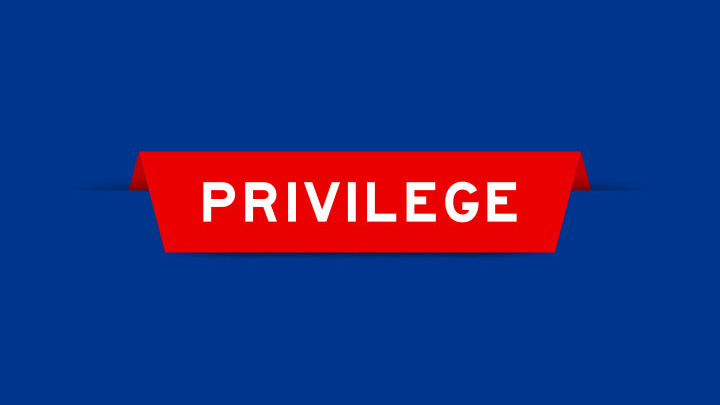Law 4990/2022 (the “Law”) transposes Directive (EU) 2019/1937 on the protection of whistleblowers (the “Whistleblowing Directive”) into Greek legislation almost a year after the expiry of the deadline for its transposition.
Most notably, the new Law introduces further obligations to the specific whistleblowing guidelines/initiatives that have already been in place since 2018, calling for the adoption of a range of measures that will have a significant impact on a number of private companies.
Reporting Protected Under the Law
Whistleblower protection refers to the reporting of wrongdoing related to EU law and, in particular, to infringements:
(i) Concerning public procurement, financial services, products and markets, prevention of money laundering and terrorist financing, product safety and compliance, transport safety, protection of the environment, radiation protection and nuclear safety, food and feed safety, animal health and welfare, public health, consumer protection, as well as protection of privacy and personal data, and security of network and information systems;
(ii) Affecting the EU economic interests; and
(iii) Related to the EU internal market.
Protection Granted to Whistleblowers
Pursuant to the Law, any form of retaliation against whistleblowers is prohibited, including threats and acts of retaliation, while whistleblowers shall not be able to be held liable. In the event of retaliation, whistleblowers shall be entitled to full compensation for the damages suffered, while any acts of retaliation, including dismissal, shall be invalid. Whistleblowers are also entitled to free legal advice and representation, as well as free psychological support.
Obligations of Private Companies
The Law has a significant impact, amongst others, on private companies with at least 50 employees or, regardless of the number of employees, for private companies operating in financial services, products and markets, as well as transport and environment sectors. Such companies bear the following obligations:
a. To set up an internal reporting channel that shall be operated by a person (employee or third party) designated for this purpose, whose specific responsibilities are laid down in the Law.
Companies with 50 to 249 employees must set up an internal reporting channel no later than 17 December 2023 and notify the Labour Inspectorate or the competent supervisory authority within 2 months as of the setting up. Companies with more than 249 employees must set up an internal reporting channel no later than 11 May 2023 and notify the Labour Inspectorate or the competent supervisory authority within 2 months as of the setting up.
b. To facilitate the submission of the internal report in writing or orally or by means of an electronic platform accessible on the company’s website, which shall also be accessible by persons with disabilities. Oral reporting shall be made by telephone or other voice messaging systems, as well as, at the request of the petitioner, through a face-to-face meeting with the designated person within a reasonable period of time.
c. To take appropriate technical and organisational measures, such as pseudonymisation techniques, both when monitoring the reports and communicating with the competent authorities.
d. To keep a record of each report they receive, in accordance with the confidentiality requirements laid down in the Law, for a reasonable and necessary period of time and, in any case, until the conclusion of any investigation or legal proceedings initiated as a result of the report.
Whistleblowers Protected Under the Law
The personal scope of the Law is broad, as not only current or former employees but also job applicants, self-employed persons, consultants, home workers, shareholders and persons belonging in the administrative, management or supervisory bodies of the company, including non-executive members, volunteers, paid or unpaid trainees, as well as any person working under the supervision and direction of contractors, subcontractors and suppliers a company are eligible for whistleblower status.
Sanctions & Administrative Fines
The Law provides both criminal sanctions and monetary fines for persons who:
(i) prevent or attempt to prevent reporting;
(ii) retaliate or take malicious action against whistleblowers; or
(iii) infringe their obligation to respect the confidentiality of the identity of the whistleblowers.
Furthermore, the Law sets out both criminal sanctions and monetary fines for persons who knowingly report or publicly disclose false information. Lastly, administrative fines ranging from 10,000 to 500,000 Euros are put in place in case of any infringements thereof that have taken place for the benefit or on behalf of a legal person.
Anonymity of Whistleblowers
It must also be noted that the Law provides the same level of protection to anonymous whistleblowers in case they are identified at a later stage, thus allowing room for anonymous reporting.
The compliance obligations borne by private companies in the context of the whistleblower protection come as additions to an existing, wide range of compliance obligations already imposed on them by European legislation, such as obligations regarding competition, data protection, harassment and discrimination in the workplace, anti-money laundering, anti-corruption, and so on.
Taking into account the sanctions and administrative fines that may be imposed on private companies for failure to comply with their compliance obligations, as well as civil liability on the part of companies that may be triggered and potential individual liability of persons with decision-making or supervision powers within a private company, compliance obligations are challenging and need to be properly addressed through comprehensive compliance programs and processes supported by qualified professionals.
Contact us today to find out more about what measures your company needs to adopt, and see how our expert employment law and privacy practice group lawyers can assist you.
 Grace Ch. Katsoulis, LL.M. (Exon.)
Grace Ch. Katsoulis, LL.M. (Exon.)
Partner
10 Solonos Street, Kolonaki, 106 73 Athens, Greece
Tel.: +30 210 36 25 943 (extension 50) | Fax: +30 210 36 47 925
E-mail: grace.katsoulis@balpel.gr
 Zoe Sp. Provatas, LL.M. (NKUA)
Zoe Sp. Provatas, LL.M. (NKUA)
Senior Associate
10 Solonos Street, Kolonaki, 106 73 Athens, Greece.
Tel.: +30 210 36 25 943 (extension 47) | Fax: +30 210 36 47 925
E-mail: zoe.provatas@balpel.gr




